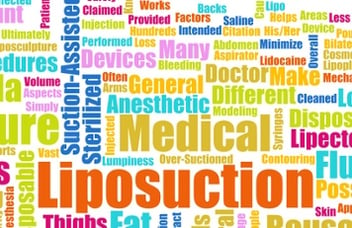Sleep, Eat, Move For Health
It’s November. Thanksgiving is coming. Then Christmas. And then, before you know it, it’s time for  New Year’s resolutions. You know, stuff like, “I’m going to be better about getting enough sleep, eating right, and exercising more.” Why wait for New Year’s? Why not get a jump on those resolutions now, and save the New Year’s version for something like, “I won’t torment my kids on Halloween for Jimmy Kimmel next year”?
New Year’s resolutions. You know, stuff like, “I’m going to be better about getting enough sleep, eating right, and exercising more.” Why wait for New Year’s? Why not get a jump on those resolutions now, and save the New Year’s version for something like, “I won’t torment my kids on Halloween for Jimmy Kimmel next year”?
Stop us if you’ve heard this before: sleep matters!
Let’s start, though, by debunking a sort of myth about the “required” eight hours of sleep nightly. That isn’t to say you shouldn’t aim to get eight hours of sleep every night, but rather that, just like the decision to pursue a cosmetic procedure or surgery, the right amount of sleep depends on the individual. In other words, eight hours every night might be the amount your best friend needs to function best, but your number might be seven hours. Or nine. Other factors are involved, too. If you have gone for a few days without getting enough sleep, for example, you’re in sleep debt and that will in turn affect how your mind and body respond to whatever amount of sleep you get. What isn’t up for debate, though, is that sleep matters to your health. The benefits of getting enough sleep are plentiful:
- Improved memory. In fact, if you’re trying to learn something new (perhaps studying for a test, for example), you’ll perform better after sleeping.
- Less inflammation, which can go hand-in-hand with heart disease, stroke, diabetes and arthritis.
- Safer driving. The Institute of Medicine estimates that one out of five auto accidents in America happen as a result from drowsy driving. That equates to roughly 1 million crashes annually.
- Ahem… better sex life. Think about it. If you’re tired due to a general lack of sleep, what suffers? There’s even evidence that lower testosterone levels in men can happen after prolonged periods of impaired sleep.
- More sleep means less weight. And the opposite is true, too. Just as with a negatively impacted sex life, after all, a workout isn’t going to seem overly appealing if you’re overtired.
So yes, sleep matters. And if you’re struggling to get enough as-is, consider tweaking things as necessary to get the amount you need.
Now, when you’re awake, what are you eating?
Did you hear that? Another diet book was just written by someone you’ve never heard of. While you were reading that sentence, two more diet books were written. There’s a lot of healthy diet information out there. Perhaps too much. We all know we should be eating healthy. The question becomes how to go about ensuring our eating habits are in fact healthy? HelpGuide.org provides a comprehensive list of tips on how to do just that, as does the United States Department of Agriculture. Some of our favorites:
- Don’t sweat the details. As in, you don’t need to count calories. Instead, focus on finding foods you love and the recipes to make those foods, making sure to use fresh ingredients. Before you know it, your diet will naturally become healthier.
- Water. Drink it. Lots of it. You’ll probably find that when you’re actually hydrated, you’ll be hungry less often.
- How you’re eating your food matters, too. Eating alone in front of the TV might lead to mindless overeating, while eating with others will negate that habit.
- Fruits and veggies. Eat more of them. And eat more types of them.
- Portion control. If you get the “petite” size steak at your favorite restaurant, will you find that you’re actually happier not eating the larger cut of meat? Try it. You might surprise yourself.
If you do eat that large steak, of course, you’ll need to MOVE!
And to be clear, moving around is a necessity whether or not you’re trying to burn off some of those steak calories. The key with exercise and physical movement is to do it regularly, consistently.Like sleep, there is no one-size-fits-all answer, either. For some, daily walks around the neighborhood might be all that’s needed to stay fit and healthy. For others, perhaps regular weight training needs to be squeezed into the routine. That depends on you.
Also like sleep, regular exercise comes with a plethora of health benefits:
- More energy. Regular exercise will improve your muscle strength and increase your endurance.
- Less crabby. It’s true. Physical activity stimulates brain chemicals that may leave you feeling happier, more relaxed and…. less crabby!
- Better sleep! It’s a win-win. Regular exercise can help you fall asleep faster and deeper, which in turn brings all the benefits to your health that come with regular sleep.
Excuses are easy to come by when you’re actually contemplating the idea of adding regular exercise to your life routine. But they’re just excuses. It doesn’t matter if you’re already overweight or starting from scratch as far as exercise knowledge goes, either. You can absolutely make regular exercise part of your life.
And just like with regular sleep and a healthier diet, you’ll be happy you did. Literally!



